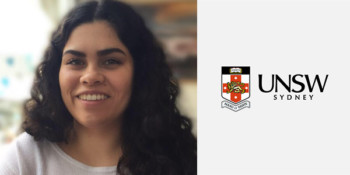Claire O’Brien is a New Colombo Plan Mobility Grant recipient from University of New South Wales. Claire undertook the Virtual Public Health Study Tour in January 2021.
Q: Why did you decide to undertake this virtual program?
I choose to participate in this study tour as the capstone project for my degree. Before the tour I knew very little about Indonesia, particularly public health in Indonesia, and as Australia is such a close neighbour, I wanted to change this.
Q: Did you receive a New Colombo Plan Mobility Grant? Why do you think the NCP is an important initiative?
Yes, I did receive an NCP Mobility grant! This allowed me to participate in the course. Had the grant not been available I do not think I would have been able to afford the course and I most likely would not have even considered the course.
I think NCP is great as it takes financial pressure of students and allows them to expand their horizons and consider an international experience. As I mentioned above Australia and Indonesia are close, both in proximity and relationship, so it is very important to develop bonds amongst students.
Q: What did you find to be the most rewarding part of this virtual program?
This program was really informative and packed full of content. Despite only being run over two weeks I believe I got a full terms worth of learning. This was great as I was looking forward to learning as much as I could about Indonesia’s Public Health System. There were also a lot of really knowledgeable, esteemed seminar speakers.
The ACICIS staff, Universitas Indonesia staff and student buddies were all really great. They were all very welcoming and accommodating and they tried their very best to make the tour enjoyable.
Q: What did you find to be the most challenging about your experience on the Virtual PHST?
The most challenging aspect of the tour would have to be the fact that it was all virtual and online. I know this was necessary due to the covid-19 pandemic, and I do think the tour was well converted to this format, however the extended screen time and intermittent internet issues made the concentration and at times engagement difficult.
Q: What public health issues in Indonesia have you become more interested in/aware of as a result of this virtual tour?
I learnt a lot about the Posyandu and Puskesmas. I thought the concept behind these were great. It was really good to learn about how they contributed to both the community and primary level of the healthcare system.
I also found the family planning and population control policies in Indonesia to be really interesting and I chose to expand on this topic for my main capstone assignment (through my home university).
Q: What was your favourite virtual fieldtrip?
My favourite was the Kali Code field trip. I loved how it was put together. Having two cameras was really great and added to the experience. I think the most interesting part of Kali Code was the history behind it and the way the settlement was able to be revived and really turned into something great.
Q: Were you able to learn about the Indonesian culture from this virtual program?
Yes, I learnt a lot! We had language, dance and cooking classes and these were great, but I found I learnt most from speaking with the student buddies and the ACICIS staff. The Indonesian students that I met were all really great and happy to chat and answer questions.
Q: How do you think the Virtual Public Health Study Tour will influence your future career or studies?
I have developed a greater interest in Indonesia. I have joined AIYA and I hope to try and get involved with some of their activities. I would love to work in Indonesia if I got the opportunity in the future.
Q: Would you recommend this virtual program to your friends?
Yes definitely, it was well put together and structured. I learnt a lot and I was able to discover more about Indonesia and Indonesia culture.
Q: Favourite Indonesian word/phrase?
Sampai Jumpa!
Q: Describe your experience of the Virtual PHST in three words:
Fun, Informative and exceptional!


